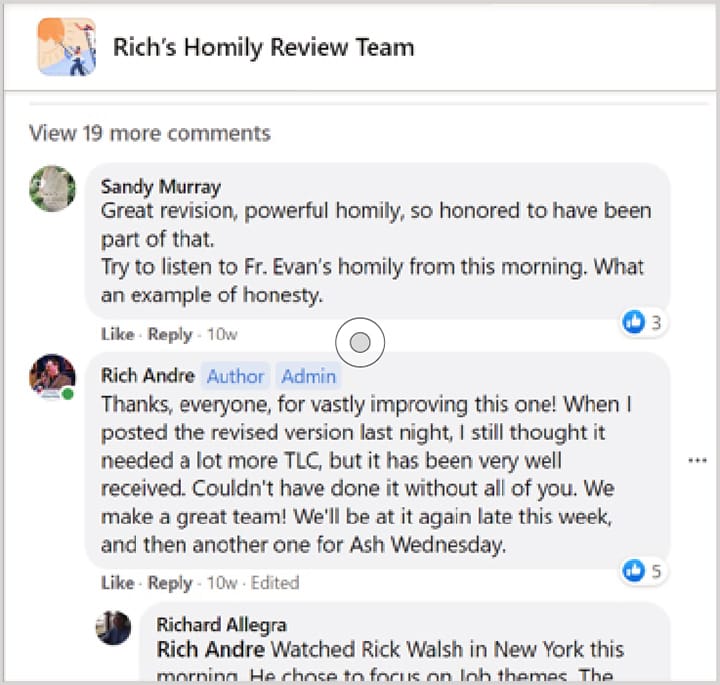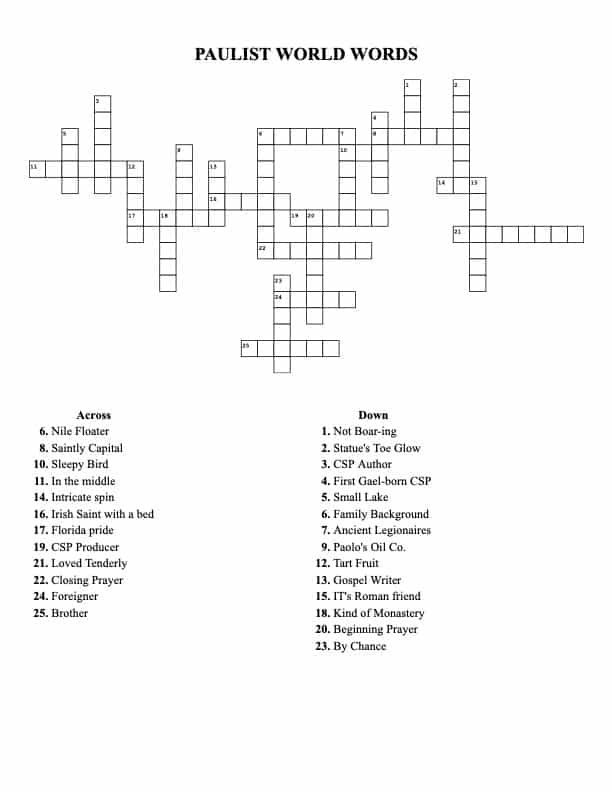May 4, 2021
- Walking the talk: Facebook team steps in to help hone homilies
- Church, Associates must take a prophetic stand in ongoing struggle against the poison of racism
- Tucson Associates bring their thoughts to (lunch) table
- Paulist World Words
- Tell us about your life as an Associate
- Paulist Associate News
- Proposed program for May
- Contacts
- Paulist Associates Promise
- Prayer for the Intercession of Fr. Isaac T. Hecker
By Richard Allegra, Diaspora Associate
The April Program in The Associates World encouraged us in Question Three to consider how our faith has grown since becoming an Associate. In two meetings I heard themes around engagement with the Paulist Fathers and mutual respect between priests and lay people. Associates applauded the partnerships they have with the Paulists in their mission of evangelization, reconciliation and ecumenism.
One such partnership is happening (among the goofy memes, gadget ads and celebrity news on Facebook) in Fr. Rich Andre’s “Rich’s Homily Review Team” Group.
Fr. Rich, ordained in 2012, and Associate Pastor of St. Austin Church in Texas, got the idea for the Group three years ago after asking his nearly 2,500 Friends (He’s “Fr. Facebook” in Paulist circles) for help with a homily. He appreciated the critiques and insights so much that he thought to make this a regular part of his preparation.
The Private Group description states that, “Whenever Rich has time to draft a homily in advance, he’ll post it here,” for the members to give him thoughts, suggestions and feedback on what he’s drafted. That “whenever” in the description is telling, given the Procrastinators of the Year Award on his mantel. Often, his well-constructed draft is posted just days before he is scheduled to preach, causing group members to snap-to and rise to the occasion. The results are engaging posts and threads that help Fr. Rich hone his homilies and cause many in the Group to “feel educated at the end of the process,” as member Kathy Perevosnik says. “It makes me a better, more engaged Catholic.”
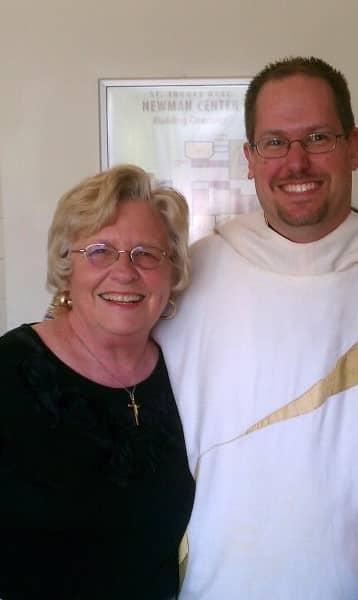
The Group consists of friends and colleagues of Fr. Rich whom he’s met throughout his life. Some are connected to his family and personal life, college, working life, and church assignments, with Paulist Associates sprinkled throughout.
Friend and Group member Shannon Flint met Fr. Rich when they were both studying to become optical engineers. They reconnected on Facebook where she was shocked to discover he was studying for the priesthood.
Another member, Kathy, was a roommate of Fr. Rich’s sister, long before he was “Father.”
Paulist Associate Sandy Murray worked together with him at the Newman Center in Columbus, Ohio during Fr. Rich’s tenure there. For my own part, I remembered him from the Paulist Center in Boston when he was a “young priest to be.” I stumbled upon his insightful posts on Facebook and “Rich Thoughts” at the Paulist.org site.
We and 100 others commit to helping him at least twice a year, according to Group rules, by offering wide-ranging opinions and thoughts from style to content to theology. Because of the strong level of trust in the group, people feel free to give kudos, suggest language options, critique images or examples, or argue theological references. It is always a lively thread. Fr. Rich confirms that thanks to this process, “in nearly every case, the final product is better.”
Fr. Rich is no stranger to collaboration in his work and preaching. During his student assignment at Paulist-served St. Philip Neri in Portland he encountered their 360° approach to homilies at Daily Mass. The presider would invite the assembly to take some time immediately after a short reflection to share responses and reflections on what they had just heard. People were comfortable disagreeing with concepts or pointing out additional perspectives on the Readings.
Even though Fr. Rich didn’t have much warning about this, he jumped into the mix with both feet and took to it readily. “I got this great experience of preaching in immediately hearing people’s reactions and learning that sometimes when I thought I was clear, I was not clear.”
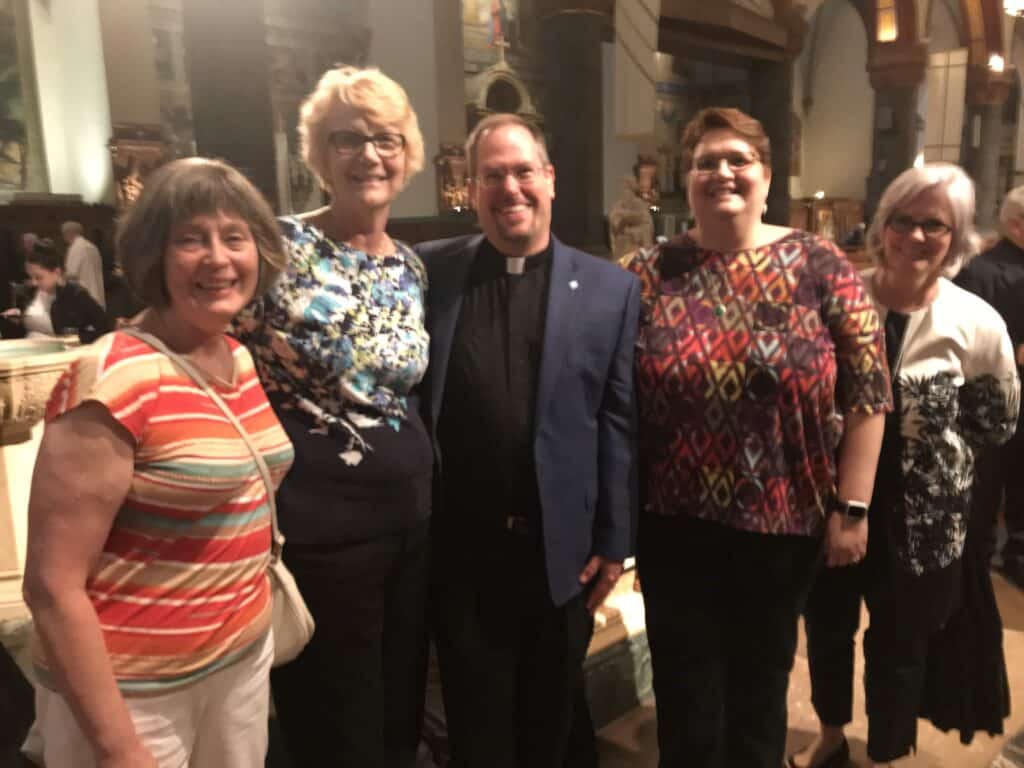
His Deacon year at St. Camillus in Maryland included extensive preaching review by a committee of parishioners and staff every weekend, for an hour immediately after Mass.
As a person who at times has to give presentations for work, and prefers to say my piece and leave, the idea of having people analyze what I just said is dumbfounding. I am struck by Fr. Rich’s humility in engaging with people he respects and trusts to make him a better priest. Indeed, he actively “fights back against clericalism” and values every opportunity to hear from lay men and women.
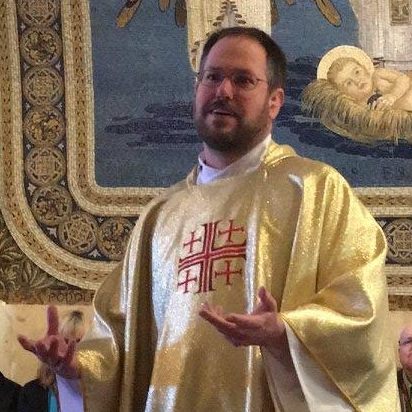
“Just because I’m ordained does not mean that I have the best insights. It does not mean I am the best writer or the best preacher, and I love that this group brings all these other perspectives. I love that the majority [of the Facebook Group] are women,” says Fr. Rich. “It empowers a lot of people to be able to share their faith.”
Another member of the Facebook Group, Boston Associate, and Editor of The Associates World, Denis Hurley says, “Fr. Andre has come up with a wonderful way of encouraging collaborative work among Paulist priests and others who are committed to Isaac Hecker’s mission. There’s much to be learned from people who take part in the homily review process.”
Through opportunities such as Fr. Rich’s homily Group, Associates are able to act in harmony with each other, while forwarding the Paulist mission by contributing to evangelization. Ohio Associate Sandy, a trained lay preacher and New Testament professor, definitely affirms, “It’s given me an avenue to do the mission; I look upon this as ministry.”
Shannon, who converted to Catholicism after reconnecting with Fr. Rich, shares that “through this group I have learned that, just like Fr Rich’s homilies don’t have to be perfect from the start, neither do I. And just like his homilies, if I am open to discussing my faith with others, I can become even better than I imagined.”
Richard Allegra, Diaspora Associate, formerly Boston Associate, resides in Palm Springs, CA.
By Erin Cordle , MPS, Columbus Associate
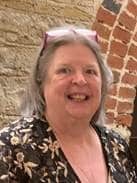
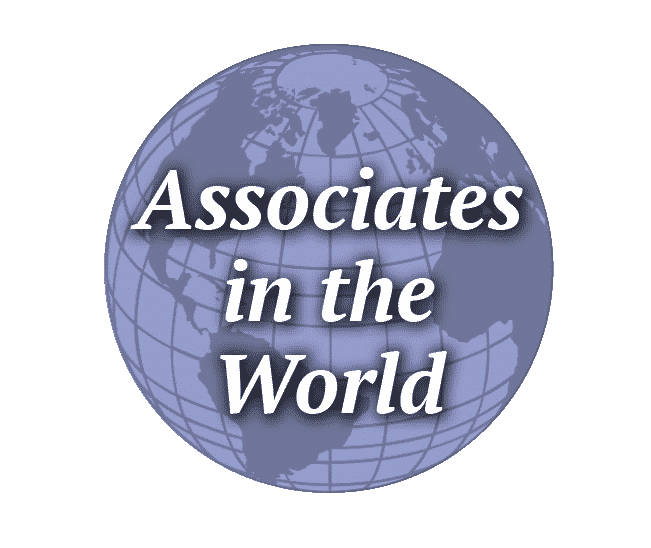
“Racism is an evil which endures in our society and in our Church. Despite apparent advances and even significant changes in the last two decades, the reality of racism remains. In large part it is only external appearances which have changed.”
The Compendium of the Social Doctrine of the Church states:
“The centrality of the human person and the natural inclination of persons and peoples to establish relationships among themselves are the fundamental elements for building a true international community, the ordering of which must aim at guaranteeing the effective universal common good … any theory or form whatsoever of racism and racial discrimination is morally unacceptable.”
Forty years later, communities within the United States continue to struggle with conversations and challenges that have racial components.
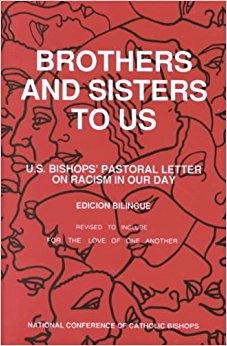
Recent years have seen an escalation to racially charged events. Racism is not an issue just for people of color. Events in communities across the country, landmark academic research and reports, and the caustic rhetoric that continues to identify the “other” as refugees, migrants, Asians, and people of color all provide ample evidence that not much has changed since 1979.
“Racism,” the USCCB statement says, is a sin: a sin that divides the human family, blots out the image of God among specific members of that family, and violates the fundamental human dignity of those called to be children of the same Father. Racism is the sin that says some human beings are inherently superior and others essentially inferior because of race. It is the sin that makes racial characteristics the determining factor for the exercise of human rights. It mocks the words of Jesus: ‘Treat others the way you would have them treat you.’ (Matthew 7:12) Indeed, racism is more than a disregard for the words of Jesus; it is a denial of the truth of the dignity of each human being revealed by the mystery of the Incarnation.”
The 1979 statement also notes that:
“Thankfully, the United States has eliminated the institutional, legalized racial discrimination of years past: slavery, Jim Crow laws, ‘separate but equal’ schools, and prohibitions on voting or owning land, to name just a few examples, are gone. These victories were hard fought, and deserve to be remembered and celebrated.”
Sadly, racism still exists and continually mutates into new and expanded forms. Too many Americans of all racial and ethnic backgrounds are disadvantaged due to inequities in access to technology and the continuing challenges for education, employment, housing, access to healthcare, and adequate nutrition.
In America today, millions of people — young and old — rely on soup kitchens and pantries for their daily sustenance. Yet, they also are overweight and malnourished with vitamin and mineral deficiencies. Unfortunately, higher rates of food insecurity and poverty and the racial wealth gap are a direct result of systemic racial discrimination in virtually every aspect of American life. Although slavery was abolished more than 150 years ago, the legacy of oppression has lived on through policies that have trapped millions of Black Americans in poverty for generations.
The Church calls us to examine our own hearts and consciences to determine how we contribute to or break down racial divisions, intolerance, and discrimination.
Our communities need opportunities to heal. The healing comes from a fuller understanding and acknowledgement of the lived reality of people and communities of color within our larger communities. This is especially important because it impacts the health and wellbeing of traumatized families and broken communities.
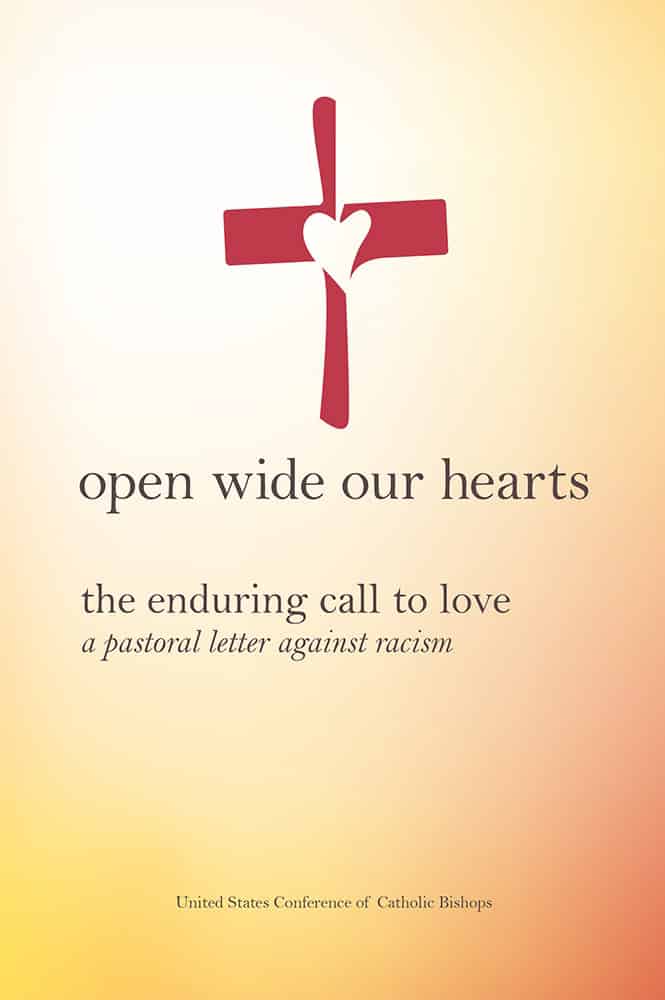
America remains a deeply divided place in many ways. Too many racially diverse Americans live with persistent challenges on many levels — education, employment, housing, just to name a few. As a result, dialogue and encounter with others with diverse backgrounds, experiences, and opinions, can be limited. Certainly there are numerous opportunities to start to engage in meaningful conversations including the study guide for the U.S. bishops’ statement, Open Wide Our Hearts:
“Racism is not merely one sin among many … To struggle against it demands an equally radical transformation, in our own minds and hearts as well as in the structure of our society.”
As Church, we must continue this work so that all members of the human family are treated with dignity and love. In identifying Catholic with an upper and lower case “c,” the USCCB also is a member of the ecumenical organization Christian Churches Together. CCT is dedicated to enhancing Christian witness throughout the country in response to racism, discrimination, and intolerance. On the 50th Anniversary of Dr. Martin Luther King, Jr.’s Letter from a Birmingham Jail, CCT released this statement:
“The call is the same as in 1963 — for followers of Christ to stand together, work together, and to struggle together for justice … We resolve courageously to face the injustice that is within ourselves, our institutions, and our nation. The church must lead rather than follow in the march toward justice.”
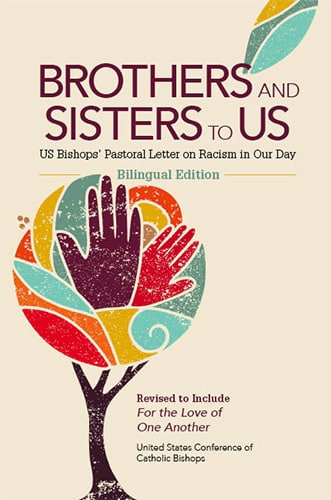
It is important to realize in the case of racism that we are dealing with is a distortion at the very heart of human nature. Each of us as Catholics must acknowledge a share in the mistakes and sins of the past. Many of us have been prisoners of fear and prejudice. We have preached the Gospel while closing our eyes to the racism it condemns. We have allowed conformity to social pressures to replace compliance with social justice.
But past mistakes must not hinder the Church’s response to the challenges of the present. As Church, we have done much, yet more is needed. The prophetic voice of the Church, which is to be heard in every generation and even to the ends of the earth, must not be muted — especially not by the counter witness of some of its own people. The Church must continue to strive to make every element of human life correspond to the true dignity of the human person.
The USCCB statement makes clear that:
“Conversion is the ever-present task of each Christian. To the extent that racial bias affects our personal attitudes and judgments, to the extent that we allow another’s race to influence our relationship and limit our openness, to the extent that we see yet close our hearts to our brothers and sisters in need.”
To that extent we are called to conversion and renewal in love and justice.
Catholics move on many levels in our complex society and we are called to speak and act in many different settings. The constant is that we must speak and act according to our competence and as the Gospel bids us. We cannot continue to live in the past and expect real systemic changes in our nation and the world. Our “new normal” demands new visions and renewed courage to stand up and work for equity. We must renew our courage to transform our society and achieve justice for all. with determination and creativity.
Once again, we have been given a “Call to Action.” The dialogue must continue, the Bishops say:
“There must be no turning back along the road of justice, no sighing for bygone times of privilege, no nostalgia for simple solutions from another age. For we are children of the age to come, when the first shall be last and the last shall be first, when blessed are they who serve Christ the Lord in all His brothers and sisters, especially those who are poor and suffer injustice.”
Erin Cordle, is a Paulist Associate at The Ohio State University Newman Center, Columbus, OH and associate director, Catholic Diocese of Columbus, Office for Social Concerns
By Larry Schnebly, Tucson Associate
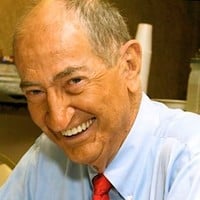
Each Monday “Chris” (Raymond) Christopher, Gil Puente and I, all Tucson Paulist Associates meet for lunch or to hold a virtual meeting and discuss our lives or books we have read or are reading.
It is a Cursillo ‘lunch’ and Nick Bahn is part of the group, but his busy life has continued without joining our meetings.
We open our time together with a prayer, read together or by one person, or by taking “turns by paragraph.”
Chris emails us the prayer on Monday morning. We have agreed to see when we can get together again.
Being old enough to retire does not make it easy to agree on when we will be safe, even though we have all had our vaccinations. We do not want to bring home any unwanted virus.
The Holy Spirit keeps us going in mutual concern.
Larry Schnebly is a Paulist Associate in Tuscon, Arizona.
An article in a recent issue referred to this quote from the Paulist Associates Handbook:
“Paulist Associates find opportunities in their daily lives, through their various vocations, to exemplify the mission commitments of the Paulists in the charism of Fr. Isaac Hecker. His charism specified that, in modern American/Canadian culture, the Holy Spirit was at work, making it conducive to invite people to faith, and helping the Church understand its role in modern, democratic societies. His charism was marked by openness to others and a particular welcome to outsiders.”
In the months ahead, we’d like to ask you to share ways in which you live that model in your daily lives, in your families, in your parishes or schools…any way that you bring the Paulist charism to the wider world.
Submissions of any length are welcome. And pictures are a great addition.
Email them to Denis Hurley at [email protected] — Thank you.
— Denis Hurley, Editor.
By John Geaney, CSP
The answer key to our May 2021 crossword will be published later in the month on the Associates Facebook Page. Thank you to John Geaney, CSP, for creating this puzzle.
By Mike Kallock, CSP, Director of the Paulist Associates
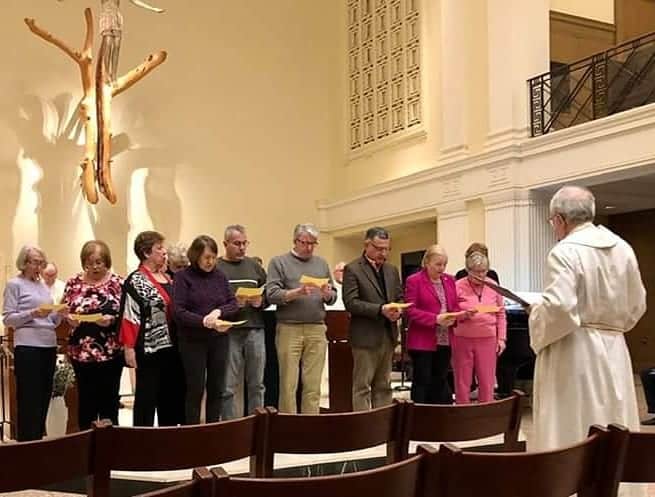
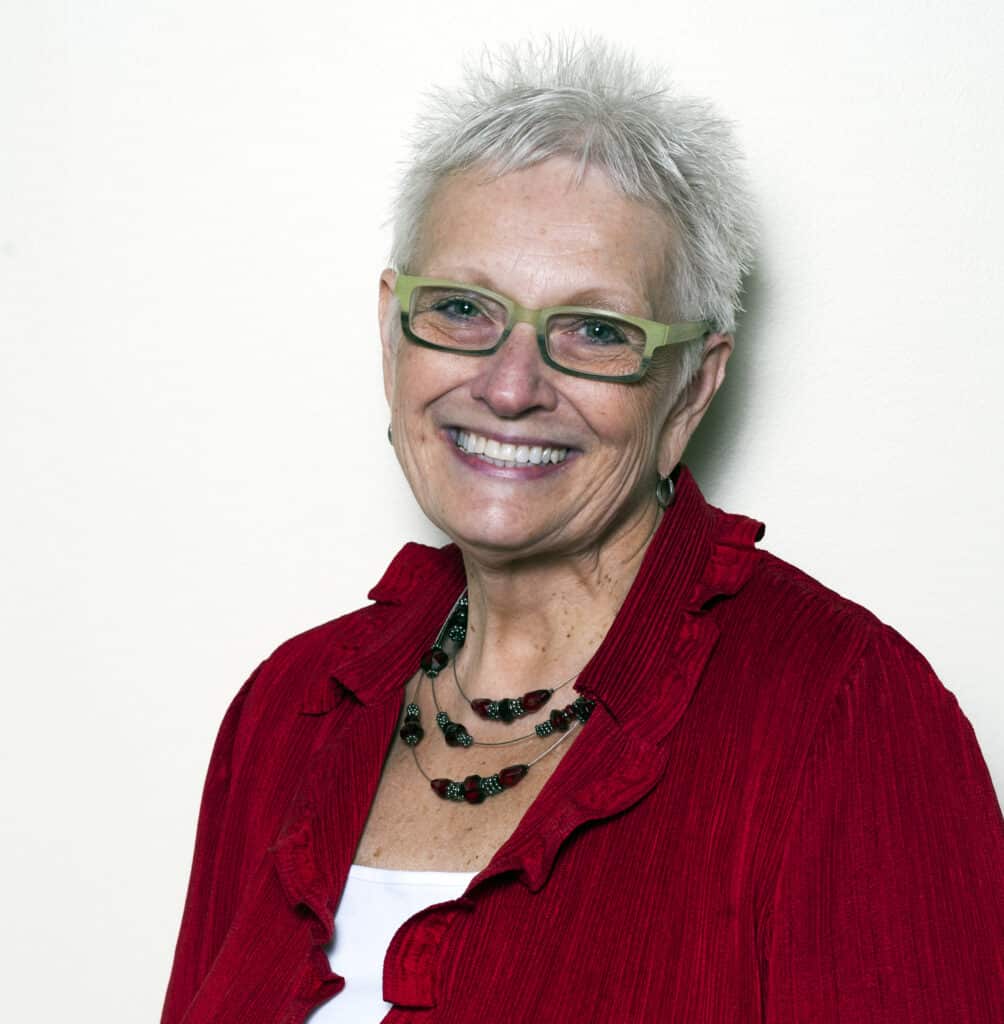
In September Katherine Murphy Mertzlufft and Carol Wagner Williams will have left the Paulist Associates Board having been replaced by two new board members. Mary Sullivan and David Rooney will be continuing on the Board along with Frs. Joe Scott and Frank Desiderio.
Our thanks and gratitude go out to Katherine and Carol for their years of service on the board. So now is the time to start the process of selecting the two new board members to replace them. The four associates on the board, serving for four years, with two turning over at the same time every two years.
The four associate board members must be from four different associate groups. Since Boston Associate, Mary Sullivan continues on the Board, no one from Boston can run for the Board. David Rooney, the other board member continuing his term, was from our Chicago group. But David moved to Iowa a while ago and now identifies more with the Diaspora group, so someone from Chicago can be elected, but not so for the Diaspora.
The first step of the election process is that at your May meeting encourage and nominate someone in your group to serve on the Board. By June 7 each nominee should write a two-paragraph candidate statement and send it to me. In the statement the candidate should offer a brief biography and say what gifts they believe they bring to the Board and their vision for the future of the Paulist Associates. The nominee should also send along a picture. This can all be done by email.
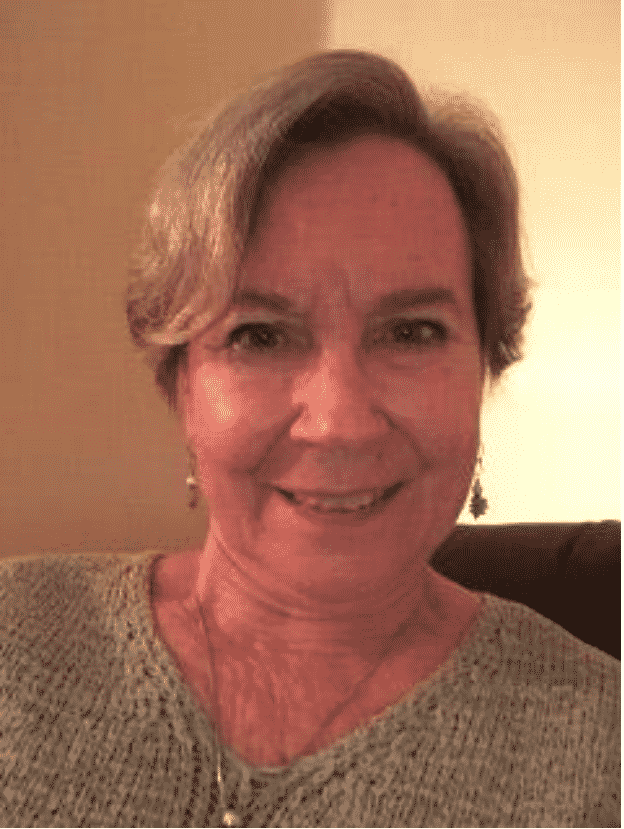
I will send the candidate statements out by e-mail on or around June 14. The period between June 7 and 30th will be a time for Associates to discuss the different candidates, pray and discern with each other about the best candidates for the Board.
An e-mail will be sent to each active Associate on July 1 with a link to an electronic ballot. The election will take place the week of July 7 and closing out on July 11. Each Associate will have two votes. If a member of your group does not have e-mail, then that member can either:
- give their votes to the coordinator of your local group to send to me in an e-mail
- or the member can send me a signed letter with their two votes to arrive no later than July 11.
My mailing address is:
Mike Kallock, CSP
Paulist House of Mission and Studies
1200 Varnum Street, NE
Washington, DC 20017
The two Associates with the highest number of votes, a simple majority, will be elected. In case of a tie, we will have a run-off election. If any of those elected or the current remaining on the board are unable to finish their term, then the candidate with the next highest number of votes will move into the vacancy.
The results of the election will be announced on July 14, 2021.
May the Holy Spirit guide the Paulist Associates in this election and in all your local endeavors.
Mike Kallock is Director of the Paulist Associates.
Submitted by Mike Kallock, CSP
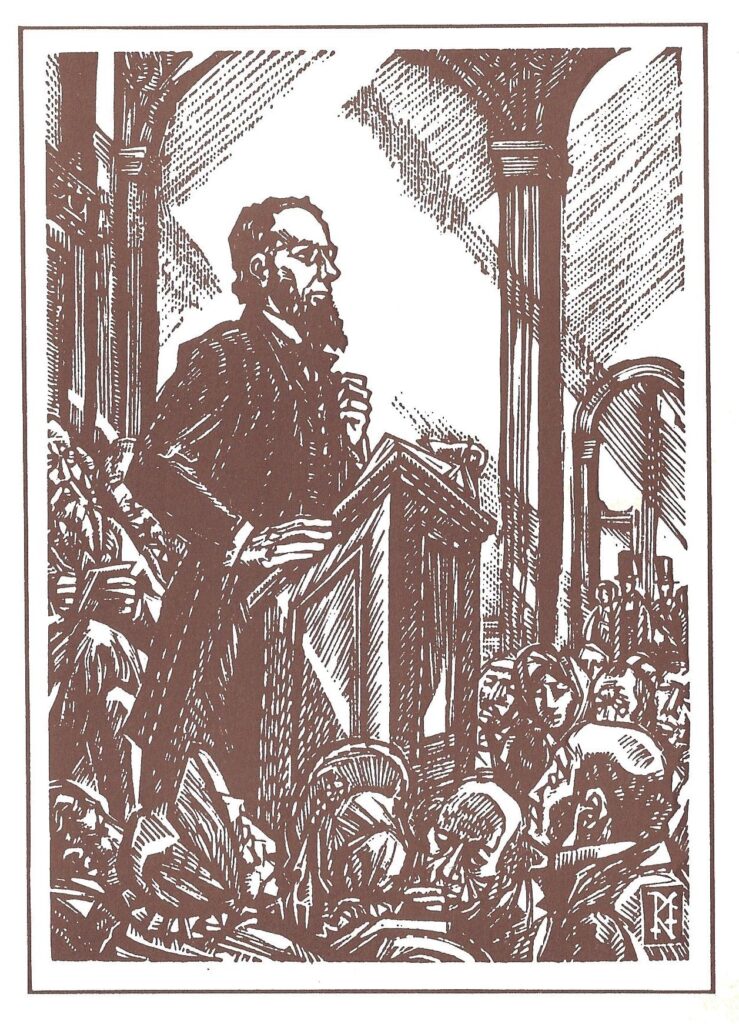
Almighty ever-living God,
Who willed the Paschal Mystery
To be encompassed as a sign in fifty days,
grant that from out of the scattered nations
the confusion of many tongues
may be gathered by heavenly grace
into one great confession of your name.
through our Lord Jesus Christ, your Son,
who lives and reigns with you
in the unity of the Holy Spirit,
one God, for ever and ever.
(One of the Opening Prayers for the Vigil of Pentecost)
The Role of the Sacraments
Man is not a bodiless spirit; a religion without a sensible sign or medium is not fitted for the two-fold nature of man. Christianity has abjured shadows ; and a sacrament is not a symbol of a process, but the very process itself of conveying grace to the soul. If a symbol lacks the grace of Christ, then it is powerless to regenerate and sanctify souls. A sacrament without grace is a fraud. God alone is competent to institute a sacrament. For God alone is the author and source of grace and a sacrament not instituted by Christ has no valid reason for its existence. …
But does God’s mercy dispense no grace outside the sacraments? God’s mercy is not tied to the sacraments. … The sacraments were instituted by Christ in order that the more precious gifts of God’s mercy might be more freely distributed and more abundantly received. Christ alone is the inward reality of the Church, of her sacraments, of her discipline, of her worship, and the Church exists solely for her inward reality-Christ. (1886 The Church and the Age pp 252-53)
… True religion, Christianity, in its mission to sanctify human nature, takes it as its Maker made it, and neither seeks its destruction nor to alter its constitution. It is a radical misconception to suppose that the reception of the sacraments abases religion. The sacraments are due to the wise provision of God to convey to men, in away fitting to their nature, the grace of Christ. (1886 The Church and the Age page 254)
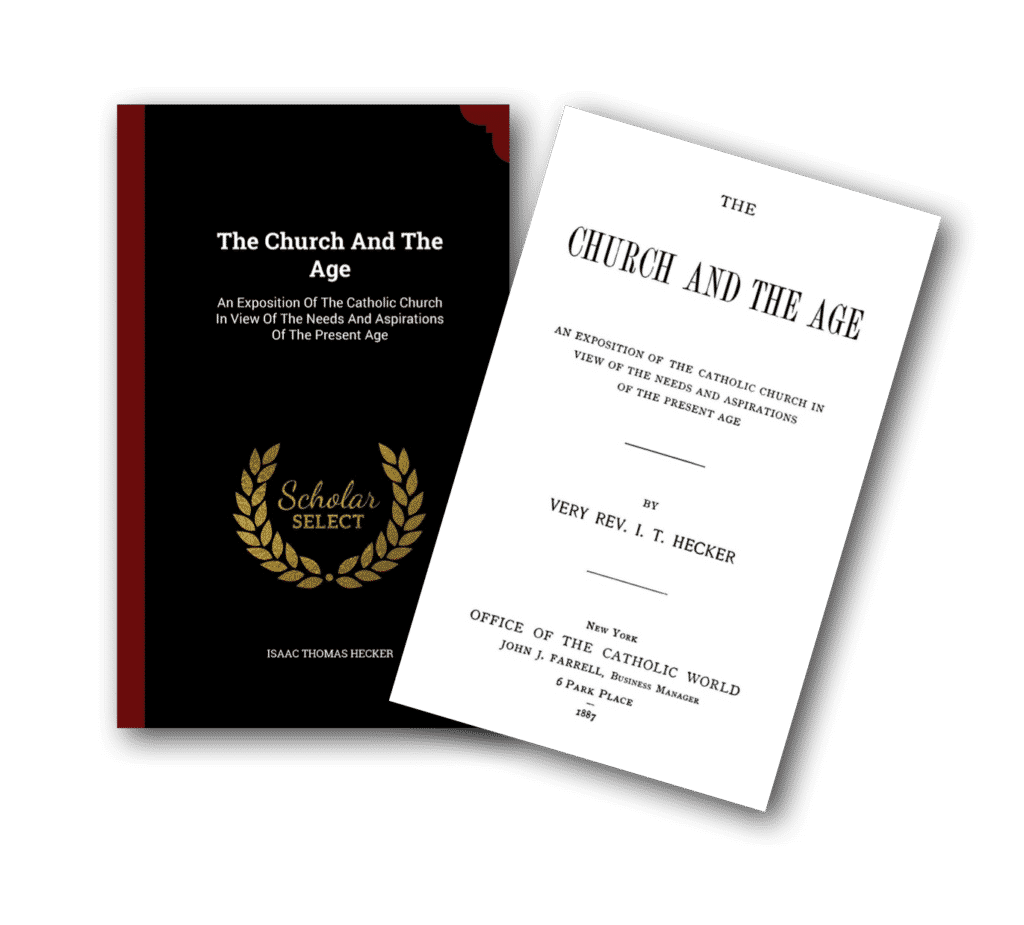 Background:
Background:The May Program selection from The Paulist Vocation, The Role of the Sacraments, is the last selection of Chapter 20: The Spiritual Life. You may recall in April we featured the first selection from Chapter 20 when Hecker was only twenty-four years old struggling at Brook Farm to find the purpose of his life.
In this month’s reading Hecker is around sixty-seven about two years from the end of his life. The selection is taken from his last book The Church and the Age, a collection of his latest writings at that time.
Hecker was not a well-polished theologian but in these two dense pieces about the sacraments, he shows a remarkable awareness of the mystery of the Catholic Sacraments. The selection also shows forth some of the main characteristics and themes of Hecker’s Spirituality. The following questions are meant to elicit some of them for our discussion.
1. Hecker writes, “God’s mercy is not tied to the sacraments.” Have you experienced or felt someone you know has experienced God’s presence outside the sacraments? Were they Catholic, another Christian denomination, another religion, or non-believer? What does this quote tell you about Hecker’s belief in God’s Spirit at work in all people?
2. Hecker writes, “The sacraments were instituted by Christ in order that the more precious gifts of God’s mercy might be more freely distributed and more abundantly received.” Focusing on the Eucharist, what do you think someone is missing or lacking if they do not participate in the Eucharist?
3. How do you feel about live streaming masses? Their strengths and weaknesses? What do you think Hecker might say about them?
4. Is there anything else from this reading from Hecker that strikes you? Challenges you? Speaks to you.
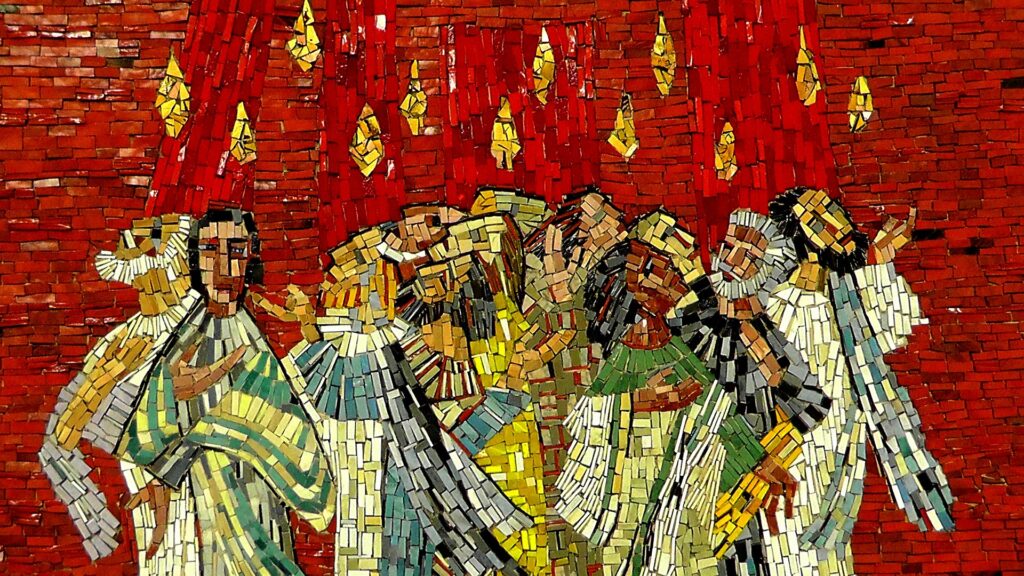 News/Announcements/Prayers for Others:
News/Announcements/Prayers for Others: O God, who by the mystery of Pentecost
sanctify your whole Church in every people and nation,
pour out, we pray, the gifts of the Holy Spirit
across the face of the earth
and, with the divine grace that was at work
when the Gospel was first proclaimed,
fill now once more the hearts of believers.
Through our Lord Jesus Christ, your Son,
who lives and reigns with you
in the unity of the Holy Spirit
one God, for ever and ever.
PAULIST ASSOCIATES NATIONAL DIRECTOR
- Mike Kallock, C.S.P.
Paulist General Office, P.O. Box 20606, New York, NY 10023, [email protected]
BOARD MEMBERS
- Carol Wagner Williams, Tucson, AZ: [email protected]
- Frank Desiderio, C.S.P. : [email protected]
- Katherine Murphy Mertzlufft, Columbus, OH: [email protected]
- Joe Scott, C.S.P. : [email protected]
- David Rooney, Chicago, IL: [email protected]
- Mary Sullivan, Boston, MA: [email protected]
ASSOCIATES WORLD STAFF
- Publisher: Fr. Mike Kallock, C.S.P.
- Editor: Denis M. Hurley
- Design Coordinator: Ellie Murphy
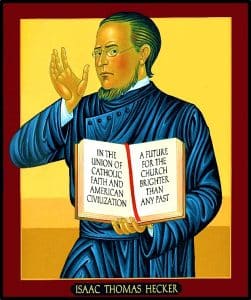
Look upon us this day, with compassion and hope. Hear our prayer. We ask that through the intercession of Father Hecker your servant, you might grant us (state the request).
We ask this in the name of Jesus Christ, Your Son, Our Lord, who lives and reigns with You and the Holy Spirit. One God, forever and ever. Amen.
When you pray this prayer, and if you believe that you have received any favors through Hecker’s intercession, please contact the Office of the Cause for Canonization of Servant of God, Isaac Hecker at [email protected]. Visit paulist.org/hecker to learn more about his life and the cause for his canonization.
I believe that I am drawn by the Holy Spirit to the spirituality and qualities of the Paulist Community.
I have discerned both by prayer and study that God calls me to become associated with the Paulists.
I promise that I will pray for the works of the Paulist Society, meet with others, who are also members of the Paulist Associates, for spiritual sharing and formation; and I seek to embody the apostolic qualities of the Paulists in my daily life.
Attentive to the Holy Spirit and faithful to the example of St. Paul and the charism of Father Isaac Hecker, I commit myself for one year of membership in the Paulist Associates.
